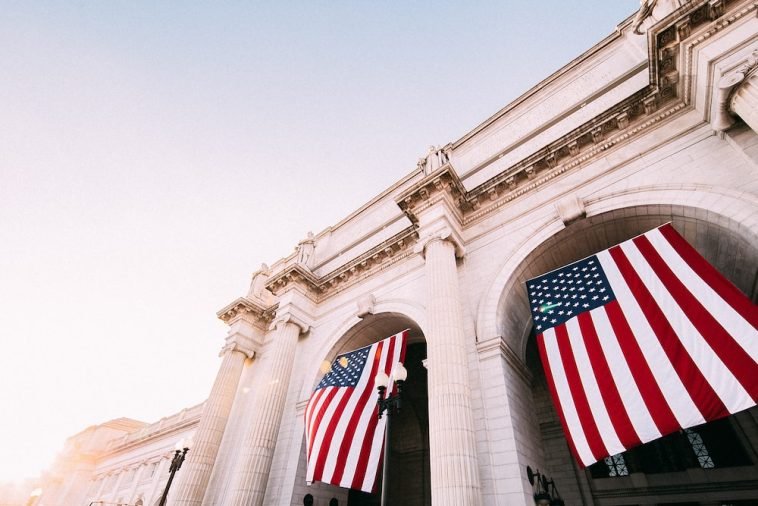Introduction.
Relocating to the US from Nigeria is a big decision. Whether it’s for work, education, or just the desire to experience life in a new country, moving to the US can be exciting but also overwhelming. The good news? With the right information and a solid plan, you can make the process smoother.
As a Nigerian, there are several routes you can take to move to the US, depending on your situation.
Whether you’re looking to study, work, or join family members already in the States, this guide will help you understand the steps involved, what to expect, and how to successfully relocate.
I know the whole process can seem complicated, with so many forms, rules, and requirements. But don’t worry, I’m here to break it down and make it as easy as possible for you to understand. I’ll cover everything from visa options to settling down in the US, plus a few tips to make your journey less stressful.
Understanding Your Options: Different Ways to Relocate to the US from Nigeria
When it comes to relocating to the US, there are several paths you can take. It all depends on your reason for moving and your circumstances. Here’s an overview of the most common visa types and immigration routes that Nigerians typically use to move to the US:
1. Student Visas (F-1 Visa)
If you’re planning to study in the US, the F-1 student visa is the most common route. This visa is for those who have been accepted into a recognized US institution for a full-time academic program. To apply for the F-1 visa, you need to:
- Be enrolled in a school that is certified by the Student and Exchange Visitor Program (SEVP).
- Have enough financial support to cover tuition and living expenses while in the US.
- Prove that you have strong ties to Nigeria and plan to return once your studies are complete.
Once you have your F-1 visa, you can stay in the US for the duration of your studies. Some students may also be able to work part-time on or off-campus during their studies, and after graduation, you may be eligible for Optional Practical Training (OPT) to gain work experience in your field.
2. Work Visas (H-1B Visa)
If you’re looking to work in the US, the H-1B visa is one of the most common work visas. This visa is for individuals in speciality occupations that require at least a bachelor’s degree or its equivalent. To apply, you need to:
- Have a job offer from a US employer.
- The employer must petition for you to get the H-1B visa.
- You must prove that your qualifications and job experience match the role.
The H-1B visa is typically valid for up to three years, and it can be extended for an additional three years.
After six years, you might be able to apply for permanent residency (a green card) if your employer is willing to sponsor you.
3. Family-based Immigration
If you have close family members who are US citizens or permanent residents, they can sponsor you to move to the US through family-based immigration.
This is one of the most common ways Nigerians get a chance to relocate to the US. Depending on your relationship to the sponsor, there are different categories of family-sponsored immigration, such as:
- Immediate relatives (spouses, parents, children).
- Family preference categories (siblings, adult children).
The process can take anywhere from a few months to several years, depending on your relationship with the sponsor and which category you fall under. Once approved, you’ll receive a visa that allows you to live and work in the US permanently.
4. Diversity Visa Lottery (DV Lottery)
Every year, the US government runs a lottery program known as the Diversity Visa (DV) Lottery. This is a random selection process that gives people from countries with low rates of immigration to the US a chance to apply for a green card (permanent residency).
Nigeria has historically been eligible for the lottery, and many Nigerians have successfully relocated to the US through this program.
To apply for the DV Lottery, you need to:
- Be from an eligible country (like Nigeria).
- Meet education or work experience requirements (at least a high school diploma or two years of work experience in an occupation that requires at least two years of training or experience).
- Complete an online application during the registration period (usually between October and November).
The chances of winning the lottery are slim, but it’s a relatively simple and low-cost way to try your luck at getting a green card.
5. Investor Visa (EB-5)
If you have the financial means to invest in a US business, the EB-5 investor visa may be an option. With this visa, you can obtain a green card by investing at least $1 million in a US business that will create jobs for US workers. If you invest in a high-unemployment area, the investment requirement drops to $500,000.
This option is expensive, but it’s a great choice if you’re looking to build or invest in a business while securing permanent residency for your family.
How Do I Start The Process?
Once you’ve figured out which visa category suits your situation, here’s a general overview of what the process looks like.
1. Research the Requirements.
Each visa category has specific eligibility requirements. Be sure to check the US embassy or consulate website in Nigeria for the most up-to-date information on visa requirements and documentation needed for your specific situation.
2. Prepare Your Documents.
This will include your passport, financial records, academic transcripts (for student visas), work experience (for work visas), and any other documents that support your application. The documentation process can be lengthy, so give yourself plenty of time to gather everything.
3. Fill Out the Visa Application.
For most visa types, you’ll need to complete the DS-160 form, which is an online application. This form asks for your personal information, travel history, and background.
4. Schedule an Interview.
Most visa applicants are required to attend an interview at the US embassy or consulate. During the interview, you’ll be asked about your reasons for wanting to go to the US, your background, and your plans while in the country. Be honest and prepared.
5. Wait for Approval.
After the interview, you’ll have to wait for a decision on your visa application. Processing times can vary, but generally, it takes several weeks or months to receive approval.
6. Prepare for Your Move.
Once you get your visa approved, it’s time to prepare for your journey. This means arranging your travel, finding a place to stay, and figuring out how you’ll get settled in the US.
Life After Relocating: Adjusting to Life in the US
Moving to the US is just the first step. Once you arrive, there are a few things you’ll need to keep in mind as you adjust to life in a new country:
- Finding Accommodation: Depending on where you’re moving to, the housing market can be competitive, so it’s important to start looking early. Many cities in the US have a wide range of options, from apartments to shared housing, so make sure to choose something that fits your budget.
- Cultural Adjustment: Life in the US is different from Nigeria in many ways, so expect some culture shock as you get used to the new environment. From food to social norms, it’s important to stay open-minded and adapt as you settle in.
- Legal Requirements: Once you arrive in the US, you’ll need to apply for a Social Security Number (SSN) for work and tax purposes. You may also need to open a US bank account and get a driver’s license if you plan to drive.
- Building Your Network: Networking is a huge part of life in the US, especially if you’re looking to find a job. Consider joining community groups, cultural associations, or professional organizations to connect with others who might help you adjust.
FAQs
How long does the US visa process take?
The processing time can vary depending on the type of visa and your specific case. It can take anywhere from a few weeks to several months, so it’s important to plan.
Can I work while studying in the US?
Yes, with an F-1 visa, you can work part-time (up to 20 hours per week) during the academic year and full-time during school breaks. After graduation, you may be eligible for OPT to work in your field.
Can I bring my family with me?
In some cases, yes. If you’re on a work visa or a student visa, your spouse and children may be eligible to join you in the US under a dependent visa.
What’s the best way to find a job in the US?
Networking, job search websites, and attending job fairs are great ways to find a job in the US. Make sure your resume and cover letter are tailored to US standards.
Conclusion.
Relocating to the US is no small feat, but for many Nigerians, it’s a life-changing experience. The opportunities for personal and professional growth are endless, and the chance to experience life in one of the world’s most diverse and dynamic countries is something many aspire to.
So, are you ready to take the leap and start your journey to the US?





GIPHY App Key not set. Please check settings